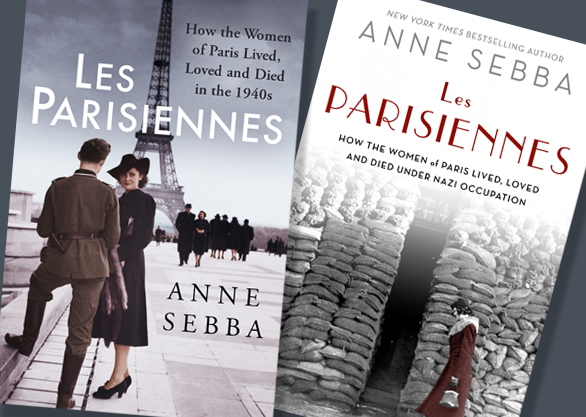
After giving several talks about Les Parisiennes and speaking to reading groups about the choices facing women in Occupied Paris, I now realise what the number one question from the audience is: what would you have done? I also realise that I don’t have a clear cut answer and have found myself saying different things on different occasions. It is an impossible question. I have always shied away from ‘what if’ questions on any historical subject. We cannot re-create all the other variables that go into making one straightforward answer. If I were a mother I would do one thing (sleep with a Nazi if it meant giving a crust of bread to my child and my action was not treasonable?) If I were a daughter of elderly parents I might do another, if I were a singer or dressmaker would I sing to a German audience or make clothes for a German woman? Who knows? On Monday I might do one thing on Friday another, in 1941 what might be murky could be clear cut by 1944. Would I deliberately cause trouble by walking out of a restaurant if the enemy walked in: what purpose would be achieved by that? Would I instigate a revolt in a prison if by my actions others would suffer? How do I (or those of my generation who have grown up in peace) begin to imagine what it felt like to be frightened, to feel a permanent visceral sense of tension?
Every talk I give results in a fresh set of questions focusing on different aspects of my book. It keeps me on my toes. This week I was asked why didn’t French women instigate more revolts against the Occupiers? Why aren’t there more women in French politics today? (Actually, I think there are quite a few). Which characters do I like best and what have I learned from my research? And it is not just old people in my audience asking the questions. I have had young history teachers who flatteringly tell me they wish they had brought their ‘A’ level class. I am often asked: What happened to all the Franco-German babies?
Often, the questions aren’t questions at all but statements; so many people have stories of their own that they want to share of an aunt who survived a camp, or of an uncle who was killed, or of a friend of a friend. Did I by any chance come across this particular woman or, is it okay to publish the diaries of someone who their mother knew during the war but did not survive? Often there are questions which I am barely qualified to answer but I can usually refer the questioner to someone who would be and then this torrent that seems to have been unleashed usually has to be stopped or we’d overrun our time. None of my other books provoked this amount of questioning.

4 Responses to The Questions People Ask